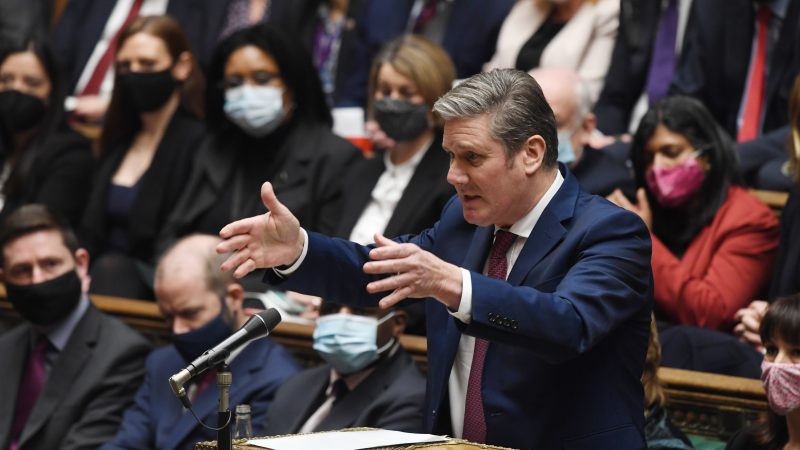
Keir Starmer has been on the attack over housing and home ownership in the last few weeks. On the heels of shadow cabinet ministers’ declaration that Labour is “proudly the party of home ownership”, Starmer used this week’s PMQs to grill the Prime Minister over mortgage rates and housebuilding.
Starmer kicked off by asking Sunak to give an answer to the question: “How many mortgage payers are paying higher rates since the Tory party crashed the economy last autumn?” Which of course Sunak summarily failed to do.
Starmer then informed him that the number of people who had suffered because “his party used their money as a casino chip” was 850,000. Starmer then brought out the George Osborne quote he used last week (the former Conservative Chancellor called Liz Truss’s government economic “vandals”), which is a bit derivative but hey: whomst among us has never had to pad something out with quotes?
Starmer then returned to another well-worn tactic: calling the Prime Minister “out of touch”, before arguing that the average deposit for a first time buyer now sits at £9,000. The Labour leader stressed that this took the average working Briton four years to save and was “a hammer blow to their ambitions “, quipping about the size of the amount that: “Or, to put it in terms the Prime Minister understands, roughly the annual bill to heat his swimming pool”.
The most interesting exchange of the session ensued after Starmer levelled the accusation that Sunak’s “decision to scrap housing targets is killing the dream of home ownership for a generation”. Sunak said that Starmer “wants to impose top-down housing targets” and “concrete over the greebelt”. Starmer raised comments Sunak made to ConservativeHome last month about Tory reluctance to commit to development projects. “His councillors simply don’t want to build the houses local people need”, Starmer said, before stating that the Prime Minister should “stop blaming everyone else and just build some houses instead”.
There is a not-insignificant contingent of people in the world of politics and think tanks who would tell you that the Prime Minister and leader of the opposition were today discussing one of the most urgent problems in contemporary British politics. Namely, how does a government, of any political ilk, tackle the housing crisis and build the houses the country desperately needs without incurring devastating political costs at the grassroots? Given the actual building of new housing and infrastructure is almost always unpopular.
The Greens get around this (or don’t) by refusing to whip at a council level. While this is supposedly because they prize the consciences of their representatives, its higher order effect is that they don’t have to whip in favour of any developments, even ones that might be environmentally beneficial. The obvious cynicism of this position was on show this weekend, when Green Party co-leader Adrian Ramsay was unconvincing in the face of grilling by the BBC’s Laura Kuennsberg over some Green councillors’ opposition to solar farms.
Even if we don’t always feel like it, as adults we know that we need to eat so we can be full; we need to wash so we can be clean. ‘We need to build houses so people can have houses’ is a truism that most British politicians accept but would rather not actually act on, and so at the core of debate on housing sits a national-level failure of object permanence.
But Labour does now seem notably willing to address the elephant in the room. One party source told LabourList this week housing was moving up the list of voters’ concerns, and there’s “no growth without sorting housing”. They added: “You’re going to hear more in the coming months, including on planning.”
Starmer’s unusually open anti-NIMBYism today, and forthright stance on what needs to happen for more housing to be built, made this week’s PMQs an unusually edifying watch.




More from LabourList
Government announce SEND reform in schools white paper
SPONSORED: ‘Industrial hemp and the challenge of turning Labour’s priorities into practice’
‘A day is a long time in politics, so we need ‘action this day’’